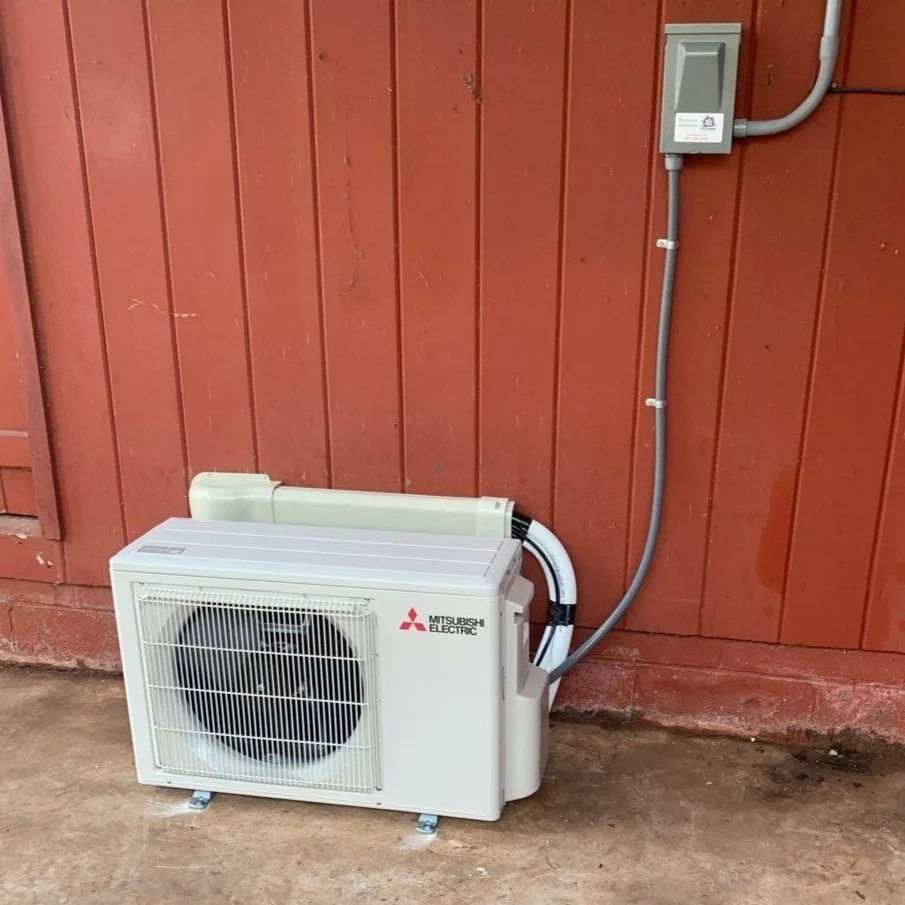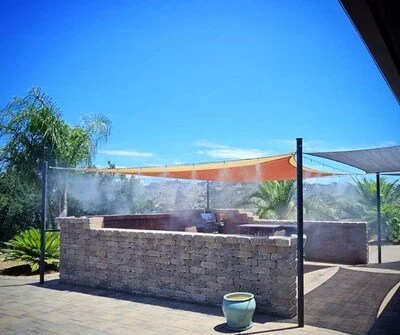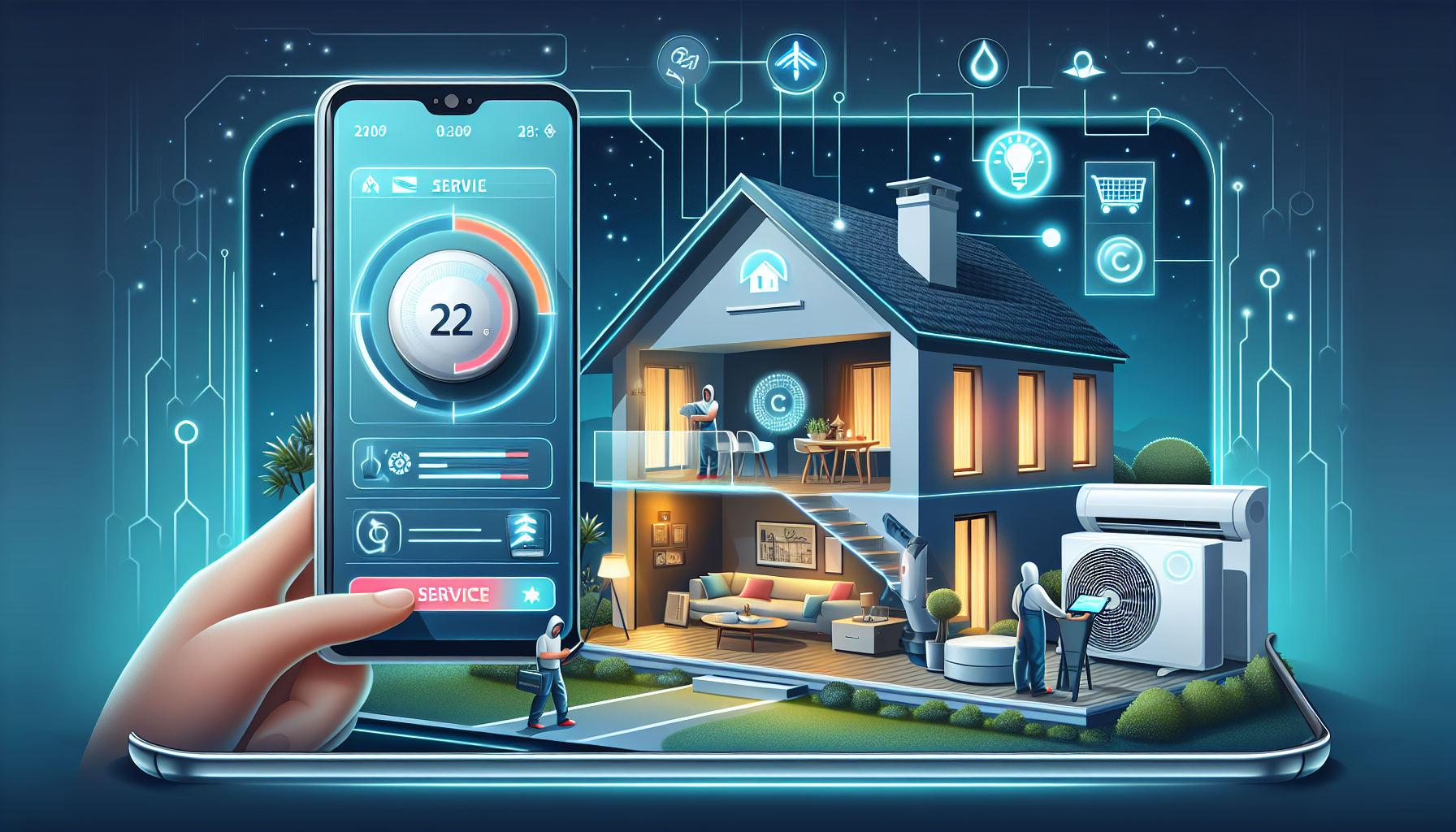Tips for Avoiding Unexpected Fees in Air Conditioning Services
Avoiding unexpected fees in air conditioning services starts with the right knowledge. Read on to uncover practical tips and preventative measures that help sidestep hidden costs, giving you control over your cooling expenses.
Key Takeaways
Regular maintenance of an HVAC system is crucial for efficiency and longevity, with tasks that homeowners can perform themselves, as well as more in-depth work requiring professional service technicians.
Upgrading an aging or inefficient AC system can significantly reduce energy costs, with considerations such as SEER rating for efficiency and selecting the right contractor for installation and maintenance.
Enrolling in a heating and cooling maintenance plan offers benefits that include ensuring system reliability, improving air quality, avoiding unexpected repair costs, and receiving priority service and discounts.
Understanding Your HVAC System and Its Components
An HVAC system, short for Heating, Ventilation, and Air Conditioning, is an intricate network that regulates and moves heated and cooled air throughout buildings, providing critical functions for indoor comfort. HVAC systems comprise major elements like a heating unit, usually a furnace, and a cooling unit, typically an air conditioner or heat pump. These units may be supplemented with additional components such as ventilation systems and air purifiers, tailored to specific needs.
In the furnace of an HVAC system, warm air is drawn into a combustion chamber, where the heat exchanger further warms it before blowing it back through the ducts. Conversely, the cooling unit, either an air conditioner or heat pump, draws air in to force it over evaporator coils to cool it. Heat pumps have the added advantage of reversing the process to provide heating when needed.
Other essential components such as the thermostat, refrigerant lines, condensing unit, air cleaners, and air conditioners play crucial roles in temperature control, cooling, and maintaining air quality.
The Importance of Regular Maintenance
Routine HVAC maintenance is essential for the system’s optimal performance during extreme weather and everyday use, enhancing overall comfort and air quality. Regular servicing of HVAC systems through maintenance plans not only extends the longevity of heating and cooling systems but can potentially double their operational years.
The following subsections will delve into more depth about DIY maintenance tasks and the benefits of professional maintenance services.
DIY Maintenance Tasks
Even as homeowners, there are several maintenance tasks that you can perform to keep your HVAC system at peak efficiency. For instance, during the high AC usage season, it’s advisable to inspect air filters every other month, cleaning or replacing them as needed. This frequency might need to be increased in households with pets. It’s also crucial to ensure the outdoor unit area is free from leaves, grass, and debris to prevent impeded performance and potential damage.
Another task is to regularly check and clean the drain line to prevent clogs and leaks, which could cause inefficiency or damage. Finally, make sure to clean the evaporator and condenser coils periodically and keep air vents dust-free for optimal operation. These simple yet significant tasks can help retain near-maximum efficiency, saving you on energy bills by avoiding gradual loss of efficiency.
Professional Maintenance Services
While DIY tasks are useful, comprehensive maintenance needs the expertise of certified technicians. Professional HVAC maintenance involves a detailed system check, including:
Inspecting and repairing damaged ductwork
Verifying proper thermostat operation
Cleaning ducts and coils
Checking refrigerant levels
Lubricating moving parts
Replacing worn components
Ensuring system balance
Testing all components to detect and address small damages promptly
Regular maintenance by HVAC technicians is essential to keep your system running smoothly and efficiently.
Moreover, technicians prioritize indoor air quality by cleaning parts of the HVAC system affecting air purity as part of the maintenance service. Adherence to maintenance plans can prevent minor issues from escalating, thereby contributing to fewer repairs and maintaining the system’s manufacturer warranty. To add to homeowner convenience, maintenance plans include scheduled reminders from the service company to ensure consistent upkeep of the HVAC system.
Identifying Common AC Problems and Their Solutions
At times, your AC might present issues like not cooling the house effectively. This could be due to problems with the furnace or the outside condensing unit. Electrical issues can also cause the air conditioning system to fail, and checking or possibly resetting the furnace circuit breaker is a recommended first step in troubleshooting. You should also check if the condensing unit outside is working correctly, involving both the compressor and fan.
If your AC unit’s disconnect block has a blown fuse, it might point to a failing part in the condensing unit that requires replacement. After attempting these repairs, if the unit is still malfunctioning, it’s advisable to call a professional service technician to diagnose and rectify more complex issues.
Enrolling in a preventive maintenance plan can reduce the likelihood of costly repairs and future breakdowns by allowing technicians to address small problems early.
Upgrading Your AC System: When and Why
There could be several reasons why you might consider upgrading your AC system. For instance, if your home isn’t maintaining a comfortable temperature, it could point to an improperly sized unit or a system that needs more than standard maintenance. High utility bills could also be a sign of decreased efficiency in your AC system, indicating that an upgrade could significantly reduce energy costs.
Moreover, if your AC system is over a decade old, upgrading to a new model with advanced technology and improved energy efficiency is recommended. Higher SEER-rated AC units, despite being more expensive initially, can offer long-term financial savings and potentially have a longer operational lifespan due to their increased energy efficiency. Retrofitting existing HVAC systems with energy-efficient components, like variable-speed fans and programmable thermostats, leads to cost savings from decreased energy consumption.
SEER Rating and Energy Efficiency
When considering an AC upgrade, understanding SEER ratings is vital. SEER, or Seasonal Energy Efficiency Ratio, measures an air conditioner’s efficiency. It is calculated by dividing the cooling output during a typical cooling season by the electrical input, with higher ratios indicating greater efficiency. SEER rating gains importance as it reflects an AC’s energy efficiency; higher SEER ratings mean lower emissions and can be found on the AC unit’s Energy Guide label, helping consumers understand energy usage.
However, an AC’s actual efficiency can be influenced by conditions such as extreme outdoor temperatures, which can affect the unit’s operational SEER rating. AC units with SEER ratings higher than 16 are considered high-efficiency, and ideal ratings for homeowners typically fall between 15 and 18, balancing cost with long-term energy savings.
Selecting the Right Contractor
Choosing the right contractor for your AC system upgrade is as crucial as the upgrade itself. A reliable and professional contractor will provide a comprehensive service, including:
Ensuring that your new system is installed correctly and efficiently
Guiding you through the process and helping you choose the most suitable system for your needs
Explaining the functionality of the various components
Assisting with understanding maintenance requirements
Such a contractor will also be able to provide you with:
A detailed quote, outlining all potential costs and allowing you to plan your budget accordingly
An explanation of the benefits of different models
Information on the importance of SEER ratings
Details on the potential energy savings associated with each option
By choosing the right contractor, you can ensure that your system upgrade is a worthwhile investment, providing improved comfort and energy efficiency for your home.
Preventive Measures: Tips for Avoiding Unexpected Costs
Avoiding unexpected HVAC costs can be as simple as taking some preventive measures. Here are some tips to help you:
Schedule service visits before the peak summer season
Adhere to HVAC maintenance plans to maintain high efficiency and validate manufacturer warranties
Upgrade to a smart thermostat for better temperature control, monitoring usage history, and receiving proactive maintenance alerts.
By following these tips, you can avoid unexpected HVAC costs and keep your system running smoothly.
Additionally, simple energy-saving techniques can help reduce costs. Some examples include:
Strategically planting trees to provide natural shade for your home, reducing the need for air conditioning
Installing window treatments to block out sunlight and heat
Using basements or lower levels of your home as cooler living spaces, reducing the need for air conditioning
By implementing these techniques, you can significantly cut down on energy usage and save money.
Budgeting for HVAC Expenses
Budgeting for HVAC expenses is an essential part of maintaining and upgrading your system. Upgrading to a more energy-efficient AC system can involve significant costs, such as an additional $900 to $1,500 for upgrading from a 14 SEER to a 16 SEER unit, and $3,000 to $5,000 or more for a 21 SEER unit. If you cannot afford to pay for HVAC equipment upfront, consider low-interest financing options as a budget-friendly alternative.
Inquiring with your electric utility company about assistance programs, discounts, or budget billing options can also help you manage AC-related expenses. Additionally, long-term strategies such as:
strategically planting trees around your home to provide shade
installing window coverings or reflective films to block the sun
improving insulation in your home
using ceiling fans or portable fans to circulate air
can be an effective way to reduce cooling costs over time.
The Benefits of a Heating and Cooling Maintenance Plan
Enrolling in a heating and cooling maintenance plan can bring numerous benefits. Such a plan ensures the HVAC system is capable of handling all climates, keeps air quality high, and gives homeowners peace of mind about fewer emergency situations. Priority service within a maintenance plan provides homeowners with prompt attention ahead of non-members, ensuring faster response times during emergencies and peak times.
HVAC maintenance plans often include discounts on diagnostics, repairs, HVAC accessories, and system replacements, providing cost savings to the homeowner. Adding to homeowner convenience, maintenance plans automate service appointments, with the HVAC company managing reminders and scheduling.
A typical HVAC maintenance plan includes two inspections a year, along with cleaning and maintaining the system for optimal performance.
Summary
In conclusion, understanding, maintaining, and upgrading your HVAC system are essential for not only ensuring comfort in your home but also for energy efficiency and cost savings. Regular DIY and professional maintenance can prevent costly repairs, and knowing when to upgrade your system can lead to significant energy savings. Enrolling in a heating and cooling maintenance plan can provide peace of mind, priority service, and cost savings. By taking these steps, you can enjoy a comfortable, energy-efficient home while avoiding unexpected HVAC costs.
Frequently Asked Questions
How can I save money on air conditioner costs?
To save on air conditioner costs, consider using fans, being mindful of temperature settings, insulating your home, keeping cooling systems in good shape, and replacing old air conditioners. Additionally, you can schedule maintenance, clean or change filters, invest in a programmable thermostat, utilize window coverings, avoid unnecessary heat, seal up leaks, and maintain proper ventilation. Using these strategies can help reduce your air conditioning expenses.
Are HVAC quotes negotiable?
HVAC quotes are negotiable, and while the component prices may not be flexible, you can negotiate for other discounts that can lower your total cost. Be upfront about your needs, budget, and expectations when discussing with your contractor.
Why do HVAC companies charge so much for refrigerant?
HVAC companies charge high prices for refrigerant because the supply of reclaimed Freon is low while the demand remains high, leading to soaring prices and difficulty in purchasing it. This has caused HVAC companies to charge more for refrigerant.
What is the importance of understanding my HVAC system?
Understanding your HVAC system is crucial as it helps you maintain it efficiently, identify problems, and make informed decisions, leading to cost savings and enhanced comfort at home.
What are some DIY maintenance tasks I can perform on my HVAC system?
You can perform DIY maintenance on your HVAC system by inspecting and replacing air filters, clearing the outdoor unit area of debris, and checking/cleaning the drain line to prevent clogs and leaks. Regular maintenance can help keep your system running smoothly.







